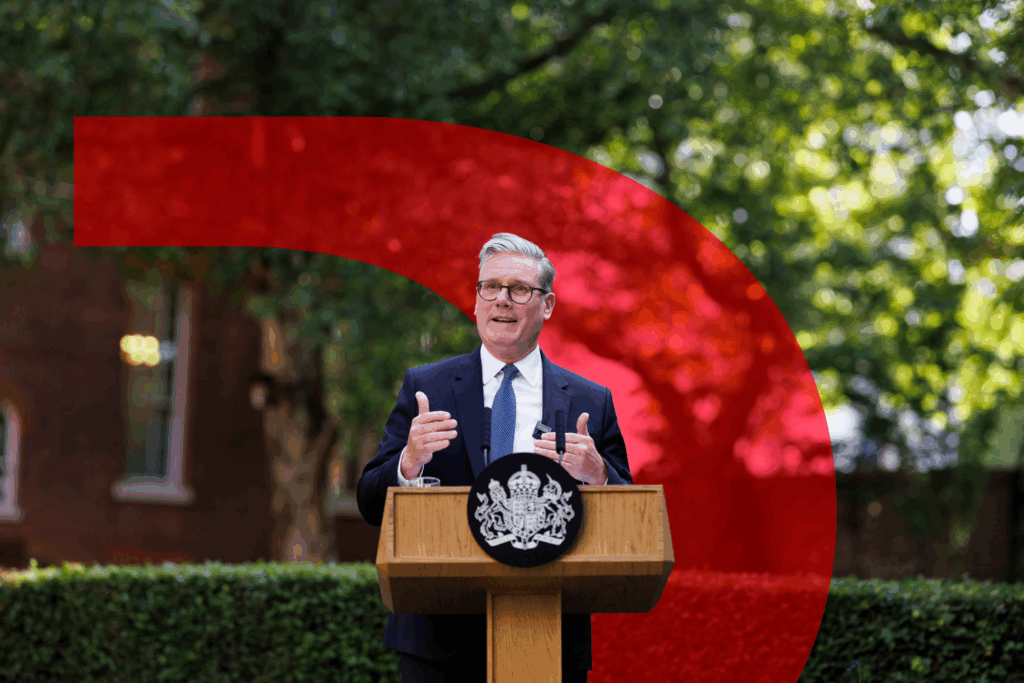Mark Mardell, the BBC’s North America Editor, gives us a taste of what it is like to be on the road with the candidates, as well as the challenge of standing against the most powerful person – and one of the best known – on the planet.
“We love, we love ROMNEY, we love we love ROMNEY!” Ohio’s attorney general is a game fellow with a surprisingly good voice, but this attempt to get a rousing chorus from a damp crowd in rain macs is beyond his abilities. The failure probably has more to do with the weather and their unfamiliarity with Queen’s “We will rock you” than any lack of enthusiasm for the candidate. Certainly I haven’t been this cold since my summer holiday in England and the crowd has been penned in much longer than me.
Republican strategists in private can despair of the man they believe would make a good President but admit is not an easy candidate to sell.
This is a very typical American affair, this brief rally on a corner of an airport field in one part of a vast state. We are perhaps used to the outrageous glamour of American politics, the zillions of balloons cascading from the ceilings at conventions, the super star politician bounding on stage to blaring music in front of spectacular videos. But a Presidential campaign is made up of a mosaic of hundreds of down home events like this, comforting in their conformity. The faithful are corralled into pens by men wearing serious ear pieces, black suits, and even blacker shades which they keep on even when the skies are grey with drizzle. A country singer comes on, and combines the words “proud”, “America” and “love” in a variety of ways. Uniformed veterans parade the American flag and a child will sing the national anthem. A preacher asks the Lord to “make our country strong again”. A parade of politicians running for slightly less exalted office than president of the United States will introduce the man who is aiming at the White House.
But what made me reflect on the differences between British and American elections was the bedraggled entry of the traveling pool into the press pen. The “traveling pool” is not some sort of transportable Jacuzzi for the candidates delight but the poor blighters who travel everywhere with him. They look like the living dead, rumpled by a thousand plane journeys, skin deadened by early days and late nights, too much fast food and too little fresh air, news zombies shambling from one rally to the next, having to check the list on their iPhones to find out if they’re in Dayton, Danville or Durango.
Been there, done that, for the BBC. At least in British elections. And I have covered British elections sitting in London taking in pictures and interviews from all over the UK and judging what should go on that night’s news. Here in the USA I do both, slipping in and out of states, not following the candidates every inch of the way but trying to work the paradox of taking an overview from the ground.
But my heart goes out to the news zombies because no British journalist on home turf needs endure their ordeal. They have been on the road with Romney for more than a year. One vital difference between elections in the UK and the USA is their length.
Ours are over in a blink. A six-week campaign is considered over long and exhausting for every one involved. But our system means we know pretty much where we stand. We have a leader of the opposition. Of course, they can be booted out and replaced in short order. But on the whole we’ve seen them for years, taking on the Prime Minister, establishing their image and their policies, imposing discipline on their party – or failing to do so. But the ground is laid well before that final short gallop around the marginal seats of our small country.
Not so in the United States, where vice President Joe Biden sometimes invokes what I call the politician’s prayer – “judge me not against the Almighty, but the alternative.”
“But that moment comes late in the cycle, ironically ensuring a campaign that feels eternal. It is not always like this, but the pattern of 2012 is a familiar one. For three years politics consists of a rolling referendum on the President. About a year out from polling day it bursts into a frenzied leadership contest for one party, which morphs bumpily into the election itself.
So a lot of the focus is on the challenger. My book shelf groans under the weight of insights into the President. I know how much dope he smoked as a student (a lot) and what he called it (choom). I know what he thinks of routine (vital for a President but crushing) and what he’d do if he was granted a whole day off (watch turtles on a Hawaiian beach).
He is at the centre of every serious decision America makes, and is on the news nearly every night. Be you fevered fan, fervent foe, or an averagely disinterested American, you know what you think of Obama.
Romney is hardly an unknown. But his image is still up for grabs. This election is in many ways about defining Romney. The Democrats are clear – he is an out of touch, elitist millionaire who doesn’t understand or care about ordinary folk. The Romney campaign cannot decide whether he is a pragmatist or an ideologue, a warm family man or hard headed business type. For a man who seems to wear even jeans like a uniform, neatly pressed, he is promiscuous with his political outfits, which he tries on and casts off with the casual abandon of teenagers mall shopping.
The American system doesn’t allow him time to evolve gently. He’s sought this role for years, but it is all rather different when the lime light flares.
Republican strategists in private can despair of the man they believe would make a good President but admit is not an easy candidate to sell. At the rally there is no doubt about the determination to stop President Obama getting four more years. As the supporters go home clutching signs to stick in their yard, vendors offer a variety of political paraphernalia, including loo paper with a picture of the President printed on it. One vendor selling Romney T shirts shouts “rather the Mormon than the moron”. It is hardly a ringing endorsement of their candidate, a man so hard to sell, with so little time to clinch the deal.






